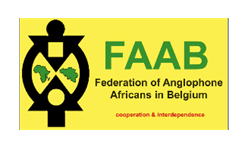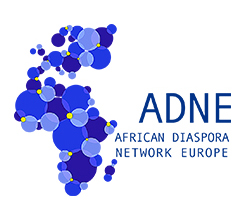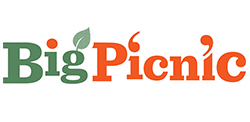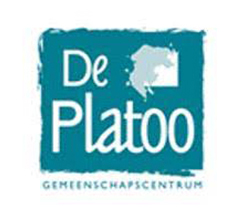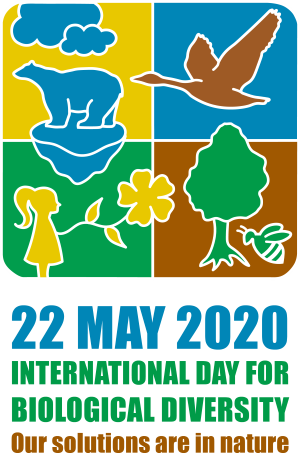
The UN designated International Day for Biological Diversity is on 22nd May 2020. The theme for this year is "Our Solutions Are in Nature." With all the challenges mankind is facing now, the theme couldn’t have been more apt. Recent events have shown us that we need to protect the earth, by limiting our harmful interference with nature’s way of regulating, protecting and renewing the earth. According to the FAO nearly a quarter of wild food species are decreasing rapidly and this is very much evident in Africa. It is alarming the rate at which deforestation for large scale mono industrial agriculture is increasing. Despite the arguments for large scale industrial agriculture, it has not eliminated hunger where it matters most, rather adds environmental and other challenges to the problems in these areas.
In an article on biodiversity, Jared Kaufman stated that ‘ Biodiversity is not only important for the planet—but it’s important for human health, too. Eating a range of fresh fruits, vegetables, and whole grains can help immune systems by providing the full range of nutrients, from vitamins C and D to zinc and iron. And COVID-19 is revealing the urgency of improving immunity—and the power of food to protect us’.
The food heritage project by the Food Bridge vzw, has shown that African farmers have the indigenous knowledge to work in unison with nature, growing nutritious indigenous food that is good for people and the environment. So they need to be supported to use farming methods which recognizes and supports biodiversity, to grow crops that for centuries have benefited people and protected the environment. However, for this to happen, consumers also need to be better informed of the impact of the food choices they make and the health benefits that are available in the indigenous crops and plants.
Promoting biodiversity and sustaining its benefits in Africa will have benefits beyond the continent. One area that this will make a great impact, is in the use of indigenous plants and crops for nutrition and food security. Africa has a huge variety of plants and crops which are not widely known but have the potential to be valuable to the global food system . The efficacy of some of these crops and food plants have been scientifically proven, thus supporting the relevance of indigenous knowledge. Here are a few of the many plants with nutritional and medicinal benefits that people can benefit from too;
Amaranth – is a leafy green and a cereal-like grain which can be ground into a flour or eaten whole. Contains protein, amino acids, vitamin C, A, calcium and iron
Fonio – There are two species of fonio ( white and black) grow across West Africa. It is a gluten-free varieties of millet. The grain is high in iron, calcium, and several essential amino acids. Fonio is highly valued in the Sahel culture of West Africa.
Fluted Pumpkin – Both the vegetable and seeds are edible. Contains essential amino acids , iron, potassium, calcium, magnesium , fibre and protein.
African breadfruit – contains carbohydrate, protein , fat, ground to flour, pressed for oil, Although it has high lipid oils, many consumers in west Africa do not extract oil from the breadfruit or use it as soup thickener unlike those from Central Africa.
Bambara beans – contains carbohydrate, protein and essential amino acids. Can be boiled, roasted, fried or ground into flour. Protein rich.
Baobab – the fruit is a good source of vitamin C, potassium, carbohydrates, protein and phosphorus . Leaves contain provitamin A and is used for soup and sauces.
Dika fruit and seed (African bush mango, Ogbono) the fruit and the seed are very nutritious. The seed is high in oil, protein and essential amino acids. The fruit has more vitamin C than pineapples or oranges. It also has antioxidants and many other nutrients like iron, potassium, calcium, zinc and vitamins B and C .
Bitter leaf - used as food and medicine for centuries in Africa. It is rich in proteins, vitamins and mineral elements including iron, phosphorus, calcium, potassium, zinc, copper, folic acids and ascorbic acid.
African oil bean- rich in protein, contains also lipids , calcium, magnesium phosphorus and carbohydrate.
Moringa- the seeds and leaves are used for nutritional and medicinal purposes. The pod provides amino acid, vitamins A,B and C . The leaves also have calcium, iron
Okro- the pods, leaves and seeds are nutritious, although the pod and seeds are consumed more. It has vitamin B6, A, C, folic acid, protein and amino acids.
African yam- Dioscorea rotundata and Dioscorea cayennensis- a valued source of carbohydrate with some protein and ascorbic acid (vitamin-C) content
Egusi- high in edible oil, also contains protein, minerals and vitamins such as thiamine and niacin. Used in sauces or as a side dish.
African Locust beans – used as a condiment for sauces. Contains protein, fat, starch and fibre. its lysine content is the same as an egg.
African pear-( ube, safu) bush plum, The bluish purple flesh is edible. can be eaten raw, roasted or softened in hot water. Rich in vitamin C,B5,calcium, phosphorus, fatty acids, and soluble fibre .
Garden eggs – these are different from aubergines. Low in sodium and calories but high in dietary fibre and potassium. There are two main varieties the milky egg shaped variety and the green slightly bitter variety. They can be eaten raw or used in sauces , soups. The leaves are very nutritious too .
Pepper fruit – rich in antioxidants magnesium, potassium, crude fibre and more
Uziza - Piper guineense looks like the common black pepper but is more spicy and aromatic.
There are many other crops and plants in Africa that can benefit mankind. The challenge is that irrespective of the indigenous knowledge regarding their benefits, results from scientific researchers are needed to support the indigenous claims. African academic researchers and institutions are investigating the benefits and potentials in African crops and plants, but there is always difficulty accessing funds and grants needed for researches on indigenous crops and plants.Support for farmers, promoting food heritage and research on the nutritional values of indigenous plants and crops, can be one way of promoting and insuring biodiversity in Africa.
Compendium
Upcoming Events
The Helping Hand Project
In collaboration with Kwabre Ne Sekyere Belgium,Mfantesman vzw,Voice of Women International, Kente FM and other African organizations, we are organizing "The Helping Hand project",is an action started in 2016, aimed at feeding the homeless in the Brussels area. We are in need of volunteers to help with the cooking, packing and distribution of food to the homeless and needy. We are also still looking for sponsors for this project. We do not accept funds but prefer sponsorship in the form of donations of desired food items, food packaging materials. if you are interested in giving a helping hand, contact us on This email address is being protected from spambots. You need JavaScript enabled to view it.







 For the first time, two visionary women have been jointly honored as the 2025 African Diaspora...
For the first time, two visionary women have been jointly honored as the 2025 African Diaspora...  The Collective Action on Forgotten Food is calling on women artists, designers, illustrators...
The Collective Action on Forgotten Food is calling on women artists, designers, illustrators...  The Food Bridge vzw, with the support of its partners, publishes an annual Compendium...
The Food Bridge vzw, with the support of its partners, publishes an annual Compendium...  Diaspora organizations in Belgium are vibrant and diverse—spread across...
Diaspora organizations in Belgium are vibrant and diverse—spread across...  30 years ago in Beijing, women from around the world demanded equality and also made history. The...
30 years ago in Beijing, women from around the world demanded equality and also made history. The...  Registration is still open for the upcoming FAO & ICMPD event on 𝗔𝗴𝗿𝗶𝗳𝗼𝗼𝗱...
Registration is still open for the upcoming FAO & ICMPD event on 𝗔𝗴𝗿𝗶𝗳𝗼𝗼𝗱... 